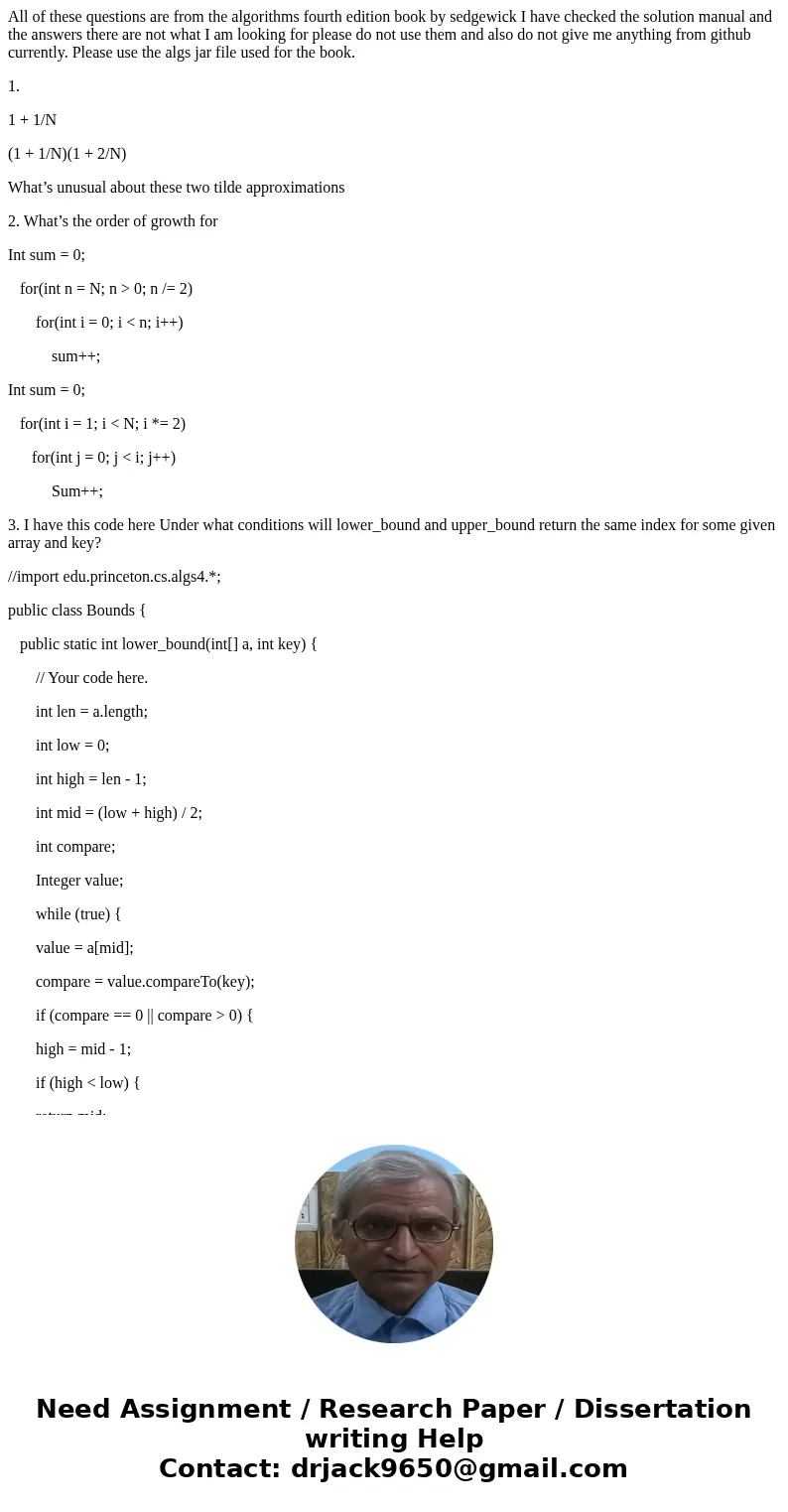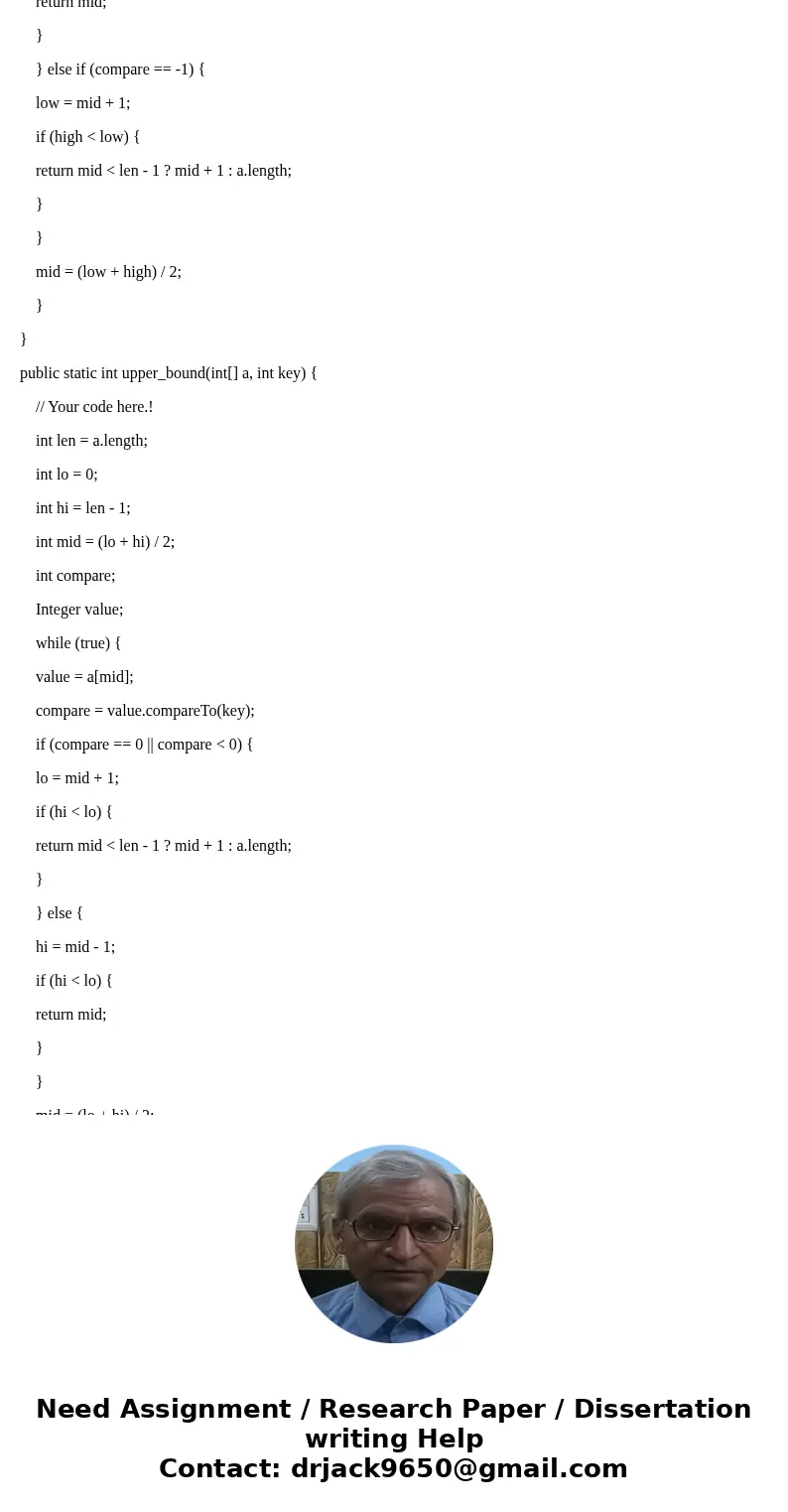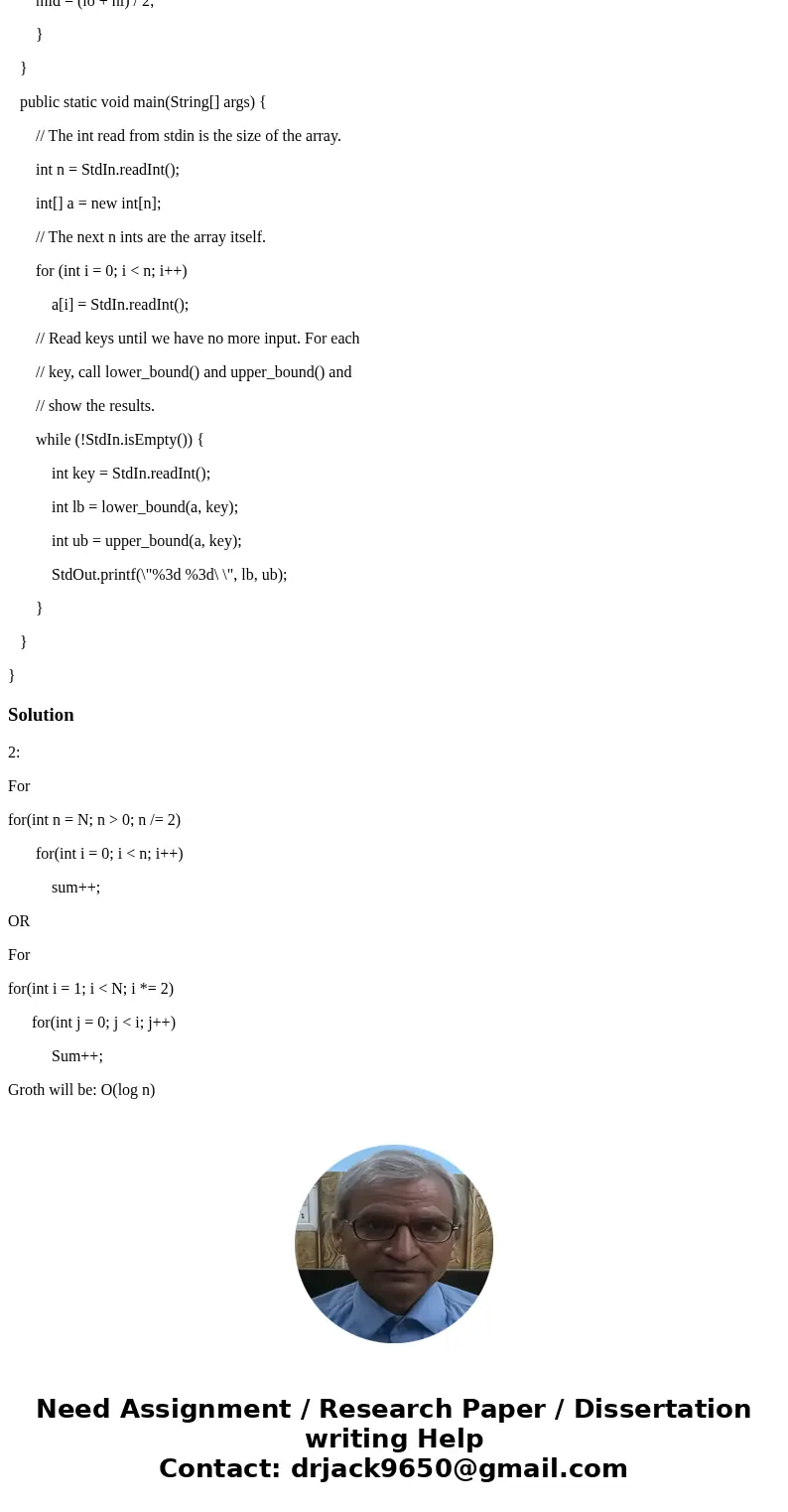All of these questions are from the algorithms fourth editio
All of these questions are from the algorithms fourth edition book by sedgewick I have checked the solution manual and the answers there are not what I am looking for please do not use them and also do not give me anything from github currently. Please use the algs jar file used for the book.
1.
1 + 1/N
(1 + 1/N)(1 + 2/N)
What’s unusual about these two tilde approximations
2. What’s the order of growth for
Int sum = 0;
for(int n = N; n > 0; n /= 2)
for(int i = 0; i < n; i++)
sum++;
Int sum = 0;
for(int i = 1; i < N; i *= 2)
for(int j = 0; j < i; j++)
Sum++;
3. I have this code here Under what conditions will lower_bound and upper_bound return the same index for some given array and key?
//import edu.princeton.cs.algs4.*;
public class Bounds {
public static int lower_bound(int[] a, int key) {
// Your code here.
int len = a.length;
int low = 0;
int high = len - 1;
int mid = (low + high) / 2;
int compare;
Integer value;
while (true) {
value = a[mid];
compare = value.compareTo(key);
if (compare == 0 || compare > 0) {
high = mid - 1;
if (high < low) {
return mid;
}
} else if (compare == -1) {
low = mid + 1;
if (high < low) {
return mid < len - 1 ? mid + 1 : a.length;
}
}
mid = (low + high) / 2;
}
}
public static int upper_bound(int[] a, int key) {
// Your code here.!
int len = a.length;
int lo = 0;
int hi = len - 1;
int mid = (lo + hi) / 2;
int compare;
Integer value;
while (true) {
value = a[mid];
compare = value.compareTo(key);
if (compare == 0 || compare < 0) {
lo = mid + 1;
if (hi < lo) {
return mid < len - 1 ? mid + 1 : a.length;
}
} else {
hi = mid - 1;
if (hi < lo) {
return mid;
}
}
mid = (lo + hi) / 2;
}
}
public static void main(String[] args) {
// The int read from stdin is the size of the array.
int n = StdIn.readInt();
int[] a = new int[n];
// The next n ints are the array itself.
for (int i = 0; i < n; i++)
a[i] = StdIn.readInt();
// Read keys until we have no more input. For each
// key, call lower_bound() and upper_bound() and
// show the results.
while (!StdIn.isEmpty()) {
int key = StdIn.readInt();
int lb = lower_bound(a, key);
int ub = upper_bound(a, key);
StdOut.printf(\"%3d %3d\ \", lb, ub);
}
}
}
Solution
2:
For
for(int n = N; n > 0; n /= 2)
for(int i = 0; i < n; i++)
sum++;
OR
For
for(int i = 1; i < N; i *= 2)
for(int j = 0; j < i; j++)
Sum++;
Groth will be: O(log n)



 Homework Sourse
Homework Sourse